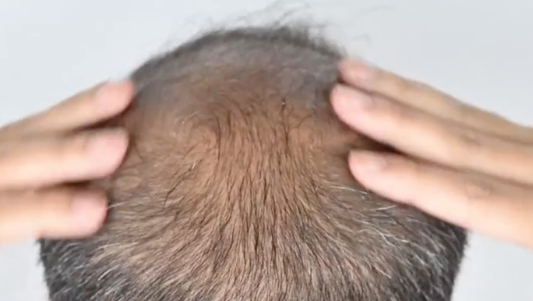
Hair loss: Can vitamins really regrow your hair? Experts weigh In
Uncover the truth about hair loss. Can vitamins help? Experts reveal the facts, myths, and when supplements might be the right solution.
If you scroll long enough on TikTok, you might come across a creator delivering a compelling case for why you need to buy the latest dietary supplement they’re selling.
The problem? Most of the people doing this have no background in nutrition or anything else related to the medical industry — yet they’re trying to convince you to buy supplements from them anyway.
“Social media has significantly influenced people’s interest in taking various vitamins, with influencers frequently promoting the new ‘it’ vitamins and making strong health claims that they attribute to their alleged supplement regimen,” Washington, D.C.-based dietitian Caroline Thomason, previously told USA TODAY.
She added: “This constant promotion creates trendy awareness but can also lead to misinformation, unnecessary supplementation and even harmful health consequences. Influencers’ endorsements often prioritize trends, social engagement and popularity over scientific evidence … and blanket statements that may not be suitable for everyone.”
From wellness influencers to TikTok shop peddlers hoping to make a quick buck, there’s plenty of misinformation about dietary supplements to be found online. If you’re thinking about adding a dietary supplement to your daily routine, here’s what nutrition experts want you to know first.
What are dietary supplements?
Dietary supplements and vitamins are often grouped together. The difference? Vitamins are one of several categories that fall under the umbrella of dietary supplements, according to the U.S. Food and Drug Administration (FDA).
Aside from vitamins, which include things like multivitamins and vitamin D, the supplement category also includes minerals (including calcium and iron), botanicals or herbs (such as ginger), botanical compounds (like caffeine or ginseng), amino acids (including tryptophan and glutamine) and live microbials (you probably know these as probiotics).
The purpose of dietary supplements is to help users reach their daily requirement of essential nutrients. You can often meet those dietary requirements through nutrient-dense food, but a medical professional may suggest adding supplements to your diet if you’re particularly deficient in a specific nutrient.
“Most people don’t need the vast majority of supplements that are available on the market, but there are lots of useful ones as well,” dietitian Jamie Nadeau tells USA TODAY. “Choosing supplements should always be individual and run by a healthcare professional that knows your personal history.”
Do dietary supplements really work?
The FDA estimates that there are more than 100,000 supplements currently being sold online and in stores throughout the U.S. It’s important to note that the FDA regulates but does not approve dietary supplements, which is why it’s critical to consult a medical professional prior to taking any supplements.
It’s the responsibility of the supplement companies themselves to make sure the products meet safety standards, but the FDA doesn’t have any authority to approve those products for safety, effectiveness or truth in labeling before the supplements are put on the market.
“One of the most important things to look for is third-party testing,” Nadeau says. “You want to make sure that it’s been tested for quality and ingredients.”
You should be wary of brands, influencers or anyone else who tells you taking a supplement can “treat, prevent, cure or alleviate the symptoms of a disease” — that kind of language is reserved for drugs, which are approved by the FDA and are subject to more strict scrutiny ahead of being put on the market.
“Be aware of potential marketing gimmicks,” Nadeau says. “If a supplement sounds too good to be true and claims to cure all of your health woes, tread carefully.”
